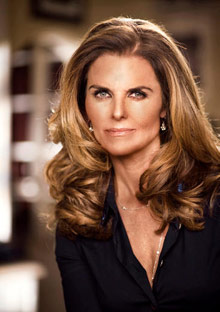On TV: Maria Shriver's The Alzheimer's Project

Photo: Katia Heinemann/HBO
For Maria Shriver, HBO's The Alzheimer's Project is a labor of love.
"Our lives are made up of memories, and we can't imagine what it must be like to go to your memory bank and find nothing there," says Maria Shriver in The Alzheimer's Project, a four-part series debuting May 10, 2009, on HBO. The subject matter could not be more personal for Shriver (who is an executive producer of the program): Her father, Sargent Shriver—founder of Head Start and Job Corps, and former director of the Peace Corps—was diagnosed with Alzheimer's in 2003. Mixing documentary portraiture with science reportage, The Alzheimer's Project illustrates with stunning clarity how the disease infiltrates the brain's pathways, and how it both strains and strengthens family bonds. (The filmmakers pay especially tender attention to the grandchildren of Alzheimer's patients.) In the enormously moving episode "The Memory Loss Tapes," seven profiles link together to create a continuum of the disease: from a youthful octogenarian with memory lapses to a former children's magician who no longer recognizes his own wife. Though often incredibly sad, The Alzheimer's Project is rarely dispiriting. While it maps the physical and emotional toll of the disease, it also offers reason to be optimistic about prevention: Ample evidence shows that exercise, diet, and cholesterol-lowering drugs may guard against dementia. (A science-focused companion book, also called The Alzheimer's Project, is out this month from PublicAffairs.) And, subtly, the series pays tribute to the lifetimes' worth of affection and devotion that people with Alzheimer's have nourished in their loved ones, whose memory banks still brim over.
If you're caring for elderly parents, see Martha Beck coping strategies



